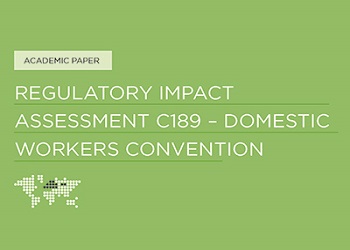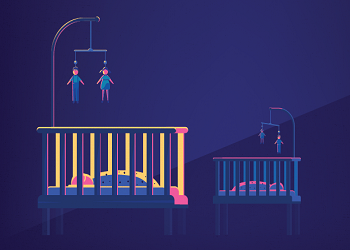- Details
The International Labour Organization (ILO) Domestic Workers Convention, 2011 (No. 189), aims to promote decent work for all and to ensure fundamental protections and rights to domestic
workers. Domestic workers’ contribution to the economy is substantial by providing critical services to households and enabling others to work outside the home, participate in the labour market and pursue educational and social activities. However, promoting decent work for domestic workers has not been a priority for the Government of Georgia thus far. The harmonization of the Georgian legislation with ILO Convention No. 189 would be essential for domestic workers, especially for women as they constitute the majority of domestic workers.
- Details
Georgia experienced a significant rise in Sex Ratio at Birth (SRB1) after its independence from the Soviet Union. Currently, it is among twelve countries worldwide where sex imbalances at birth have been observed. The other countries are Albania, Armenia, Azerbaijan, China, Hong Kong (SAR of China), India, the Republic of Korea, Montenegro, Taiwan (Province of China), Tunisia, and Vietnam.
Several studies (UNFPA 2015, 2017; Duthé at al. 2012) have provided a detailed analysis of reproductive behavior and birth masculinity in Georgia. These studies reveal that since 1992, deteriorating economic conditions coupled with strong son preference, low fertility rates, and access to affordable reproductive technologies have contributed to the increasing trend, one that lasted for almost 15 years, of an SRB imbalance in Georgia (via sex-selective abortions). SRB fluctuated around 114 from 1999-20042. Since 2004, SRB has been experiencing a reverse trend, reaching a normal level in 2016.
- Details
Gender-biased sex selection (GBSS) in favor of boys is an indicator of gender discrimination and highlights the inequality towards girls throughout many countries. Patriarchal structures reinforce a preference for sons and perpetuate a societal climate of violence and discrimination against women and girls. GBSS is moreover a symptom of the pervasive social, political, cultural, and economic injustices against women and girls. While, declining rates of fertility, and rapid technological developments that allow prenatal sex selection, have also further exacerbated these practices.
Since its independence from the Soviet Union, Georgia has experienced a significant rise in the number of male births over girls. A comprehensive countrywide report (2017), produced by UNFPA Georgia alongside the National Statistics Office of Georgia (Geostat), reveals that after reaching historically high levels in 2004 (115 boys per 100 girls), the sex ratio at birth (SRB) started to decline. This is certainly a positive direction towards greater gender equality, however, due to the notable preference for sons, most families in Georgia still wish to have at least one male child.













